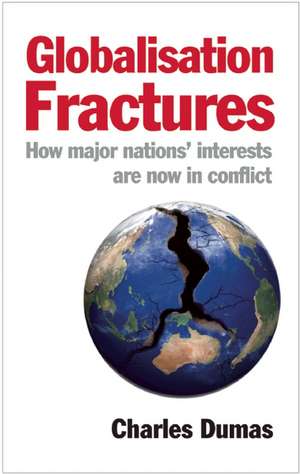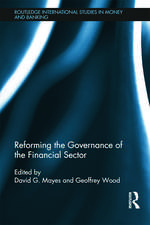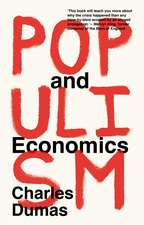Globalisation Fractures: How Major Nations' Interests Are Now In Conflict
Autor Charles Dumasen Limba Engleză Paperback – 20 sep 2010
In his previous books, The Bill from the China Shop and China and America: A Time of Reckoning, Charles Dumas was the first to identify the existence and potential impact of the Eurasian Savings Glut - most importantly how it would push US mortgage borrowing to excess, precipitating the global credit crisis. As we now strive to rescue the international financial system, he points to uncomfortable truths about the conflicts ahead.
The US has reverted to debt-driven growth (this time, government debt), and its economic benefit is waning while the risk increases. China is veering back to export-led growth and large surpluses, increasingly at others' expense. Europe is squeezed between them, and the fixed-rate euro system is creating a subsidiary set of extreme imbalances: the Mediterranean cannot expand demand, while north-central Europe will not expand it.Globally, the choice may soon be between serially degrading US federal credit or putting up trade barriers. The first would undermine the world financial system, but the second would damage world trade, at huge expense to real incomes everywhere.
Globalisation Fractures confronts the inherent conflicts as issues to be urgently addressed. This is the battleground upon which the future of the global economy will be determined.
The US has reverted to debt-driven growth (this time, government debt), and its economic benefit is waning while the risk increases. China is veering back to export-led growth and large surpluses, increasingly at others' expense. Europe is squeezed between them, and the fixed-rate euro system is creating a subsidiary set of extreme imbalances: the Mediterranean cannot expand demand, while north-central Europe will not expand it.Globally, the choice may soon be between serially degrading US federal credit or putting up trade barriers. The first would undermine the world financial system, but the second would damage world trade, at huge expense to real incomes everywhere.
Globalisation Fractures confronts the inherent conflicts as issues to be urgently addressed. This is the battleground upon which the future of the global economy will be determined.
Preț: 129.69 lei
Nou
Puncte Express: 195
Preț estimativ în valută:
24.82€ • 25.96$ • 20.61£
24.82€ • 25.96$ • 20.61£
Carte disponibilă
Livrare economică 13-27 martie
Preluare comenzi: 021 569.72.76
Specificații
ISBN-13: 9781846684241
ISBN-10: 1846684242
Pagini: 277
Dimensiuni: 135 x 213 x 23 mm
Greutate: 0.46 kg
Editura: Profile Books(GB)
Colecția Profile Books
Locul publicării:United Kingdom
ISBN-10: 1846684242
Pagini: 277
Dimensiuni: 135 x 213 x 23 mm
Greutate: 0.46 kg
Editura: Profile Books(GB)
Colecția Profile Books
Locul publicării:United Kingdom
Recenzii
"To understand the causes of the financial crisis, read this insightful analysis of how globalisation led to our present predicament. This book will teach you more about why the crisis happened than any other blow-by-blow account by an alleged protagonist" — Mervyn King, Governor, Bank of England
"It is refreshing to have someone put succinctly the sheer shock that globalisation delivered" -The Times
“Sophisticated, convincing and credible ...." -The Business Economist
"It is refreshing to have someone put succinctly the sheer shock that globalisation delivered" -The Times
“Sophisticated, convincing and credible ...." -The Business Economist
Notă biografică
Charles Dumas has been Head of the World Service at Lombard Street Research since 1998 and is one of the world’s leading macroeconomic forecasters. He was previously a journalist at The Economist, an economist at General Motors and J. P. Morgan, and then managing director in JPM’s M&A department in New York.
Descriere
Dumas identifies and analyses the factors undermining the unprecedented efforts of nations to pull their economies out of the recession



















